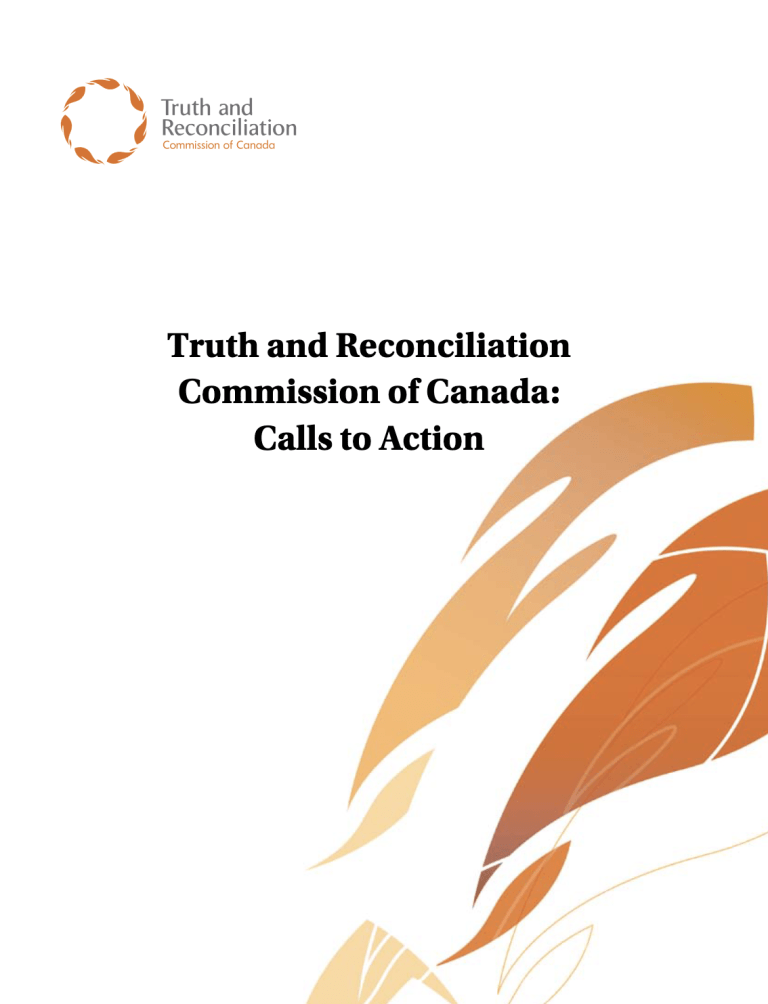32 search results
for
Indigenous organizations
Reconciliation
Missing children and burial information
Recommendation 76: We call upon the parties engaged in the work of documenting, maintaining, commemorating, and protecting residential school cemeteries to adopt strategies in accordance with the following principles:- The Aboriginal community most affected shall lead the development of such strategies.
- Information shall be sought from residential school Survivors and other Knowledge Keepers in the development of such strategies.
- Aboriginal protocols shall be respected before any potentially invasive technical inspection and investigation of a cemetery site.
-
Category and theme:
Groups affected:
Reconciliation
Commemoration
Recommendation 79: We call upon the federal government, in collaboration with Survivors, Aboriginal organizations, and the arts community, to develop a reconciliation framework for Canadian heritage and commemoration. This would include, but not be limited to:- Amending the Historic Sites and Monuments Act to include First Nations, Inuit, and Métis representation on the Historic Sites and Monuments Board of Canada and its Secretariat.
- Revising the policies, criteria, and practices of the National Program of Historical Commemoration to integrate Indigenous history, heritage values, and memory practices into Canada’s national heritage and history.
- Developing and implementing a national heritage plan and strategy for commemorating residential school sites, the history and legacy of residential schools, and the contributions of Aboriginal peoples to Canada’s history.
-
Category and theme:
Groups affected:
Reconciliation
Commemoration
Recommendation 81: We call upon the federal government, in collaboration with Survivors and their organizations, and other parties to the Settlement Agreement, to commission and install a publicly accessible, highly visible, Residential Schools National Monument in the city of Ottawa to honour Survivors and all the children who were lost to their families and communities.-
Category and theme:
Audience:
Groups affected:
Reconciliation
Commemoration
Recommendation 82: We call upon provincial and territorial governments, in collaboration with Survivors and their organizations, and other parties to the Settlement Agreement, to commission and install a publicly accessible, highly visible, Residential Schools Monument in each capital city to honour Survivors and all the children who were lost to their families and communities.-
Category and theme:
Audience:
Groups affected:
Reconciliation
Commemoration
Recommendation 83: We call upon the Canada Council for the Arts to establish, as a funding priority, a strategy for Indigenous and non-Indigenous artists to undertake collaborative projects and produce works that contribute to the reconciliation process.-
Category and theme:
Audience:
Groups affected:
Reconciliation
Media and reconciliation
Recommendation 84: We call upon the federal government to restore and increase funding to the CBC/Radio-Canada, to enable Canada’s national public broadcaster to support reconciliation, and be properly reflective of the diverse cultures, languages, and perspectives of Aboriginal peoples, including, but not limited to:- Increasing Aboriginal programming, including Aboriginal-language speakers.
- Increasing equitable access for Aboriginal peoples to jobs, leadership positions, and professional development opportunities within the organization.
- Continuing to provide dedicated news coverage and online public information resources on issues of concern to Aboriginal peoples and all Canadians, including the history and legacy of residential schools and the reconciliation process.
-
Category and theme:
Audience:
Groups affected:
Reconciliation
Media and reconciliation
Recommendation 85: We call upon the Aboriginal Peoples Television Network, as an independent non-profit broadcaster with programming by, for, and about Aboriginal peoples, to support reconciliation, including but not limited to:- Continuing to provide leadership in programming and organizational culture that reflects the diverse cultures, languages, and perspectives of Aboriginal peoples.
- Continuing to develop media initiatives that inform and educate the Canadian public, and connect Aboriginal and non-Aboriginal Canadians.
-
Category and theme:
Groups affected:
Reconciliation
Sports and reconciliation
Recommendation 87: We call upon all levels of government, in collaboration with Aboriginal peoples, sports halls of fame, and other relevant organizations, to provide public education that tells the national story of Aboriginal athletes in history.-
Category and theme:
Audience:
Groups affected:
Reconciliation
Sports and reconciliation
Recommendation 88: We call upon all levels of government to take action to ensure long-term Aboriginal athlete development and growth, and continued support for the North American Indigenous Games, including funding to host the games and for provincial and territorial team preparation and travel.-
Category and theme:
Audience:
Groups affected:
Reconciliation
Sports and reconciliation
Recommendation 90: We call upon the federal government to ensure that national sports policies, programs, and initiatives are inclusive of Aboriginal peoples, including, but not limited to, establishing:- In collaboration with provincial and territorial governments, stable funding for, and access to, community sports programs that reflect the diverse cultures and traditional sporting activities of Aboriginal peoples.
- An elite athlete development program for Aboriginal athletes.
- Programs for coaches, trainers, and sports officials that are culturally relevant for Aboriginal peoples.
- Anti-racism awareness and training programs.
-
Category and theme:
Audience:
Groups affected:
